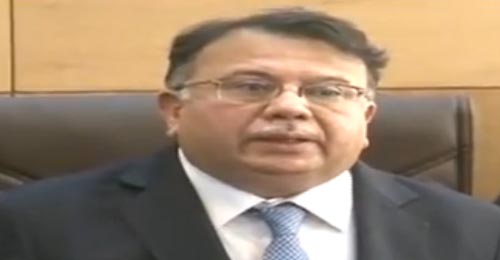The 20th Law Commission, headed by Justice A.P. Shah presented its 253rd report on 29th January, 2015 titled “Commercial Division and Commercial Appellate Division of High Courts and Commercial Courts Bill, 2015”. The objective of the report is to propose the establishment of separate Commercial Courts as well Commercial Division and Commercial Appellate Division of High Courts in order to fast track the adjudication of commercial disputes of civil nature. The predecessor to this draft bill postulated the setting up of Commercial Division of High Court in 2009 but has been stuck in RajyaSabha on account of defects and opposition to its feasibility.
The report addresses the need to expedite the pendency of commercial disputes in civil courts. “Not only does this benefit the litigant, other potential litigants (especially those engaged in trade and commerce) are also advantaged by reduction in backlog caused by the quick resolution of commercial disputes. In turn, this will further economic growth, increase foreign investment, and make India an attractive place to do business.” The commission said. Moreover, an exclusive and robust commercial dispute resolution mechanism is essential to boost the image of Indian justice delivery system.
The draft bill defines a “commercial dispute” to mean a dispute arising out of ordinary transactions of merchants, bankers, financiers and traders such as those relating to mercantile documents, joint ventures and partnership agreement, intellectual property rights, insurance and other such areas as have been defined in the proposed bill. Any disputes that arise from such agreements with the Union and State governments and bodies performing public functions will constitute a “commercial dispute”.
The number of cases pending in the 5 High Courts of Delhi, Bombay, Calcutta, Madras and Himachal Pradesh is more than 50% of all civil cases pending in these courts. Consequently, among the key provisions of the bill, the Central government is to set up commercial courts in a) States and Union Territories where the High Courts do not possess ordinary original civil jurisdiction and, b) to those regions where such a jurisdiction of the High Courts does not extend. These courts are to be modelled along the lines of Courts in Singapore and United Kingdom commercial courts. The report suggests that at least 60 commercial courts are to be set up across the country or about 2 or 3 courts in each state.
While the minimum pecuniary jurisdiction is Rs. One crore, the sectors within the ambit of commercial courts to adjudicate upon are numerous and exhaustive. The procedure for commercial courts has also been revamped to ensure a speedy delivery of justice. The procedural law to be followed by the Courts is to supersede the Civil Procedure Code, 1908 to the extent of conflict. For other provisions, Civil Procedure Code shall supplement procedure. A strict time limit of 90 days after conclusion of arguments has been set for delivery of judgment. Courts will be empowered to conduct a “case management hearing” where it will have all the necessary powers required to ensure the proper conduct of trial within a specified time frame. Courts are also empowered to impose exemplary costs against defaulting parties for willful failure to disclose all documents. The Courts shall also be given the discretion to make a company involved in litigation pay Court fees and other expenses based on court hours used by it.
In order to expedite the resolution of pending commercial disputes in High Courts, the bill also proposes to set up commercial divisions in High Court that are already exercising ordinary original civil jurisdiction, with a minimum pecuniary limit of Rs. One Crore. The appeals from the commercial courts, on the other hand will go to the commercial appellate division of 2 judges, while appeals against interim orders is barred.
In accordance with the practices of successful commercial courts in UK and Singapore, the commercial courts will have judges possessing expertise and experience in commercial disputes. A fixed tenure of 2 years may be implemented to ensure continuity.
The bill also provides a separate procedure for “summary judgement” where parties can seek judgment of the court summarily at any point of time prior to the commencement of trial, namely at the time of framing of issues.
The bill is proposed to be introduced in the Parliament during the budget session. However, it still remains to be seen whether the modified version of the bill will succeed where its predecessor couldn’t.

